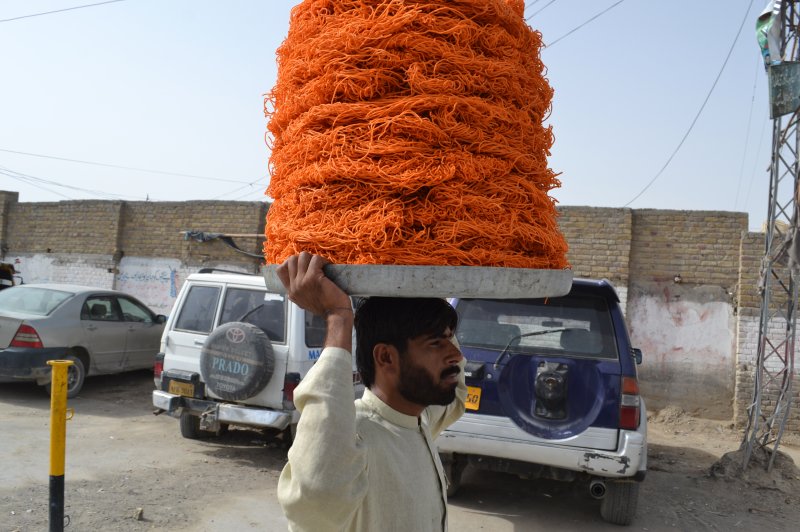A Pakistani vendor carries sweets to the market for customers shopping during the holy fasting month of Ramadan in Chaman on August 8, 2013. Muslims across the world are observing holy month of Ramadan which prohibits eating, and drinking from dawn to dusk. A heat wave in Karachi has claimed more than 600 lives so far. File photo by Matiullah/UPI Next
KARACHI, Pakistan, June 24 (UPI) -- A senior Islamic cleric announced Wednesday that some Muslims may skip out on fasting during Ramadan in light of Pakistan's deadly heat wave.
The heat wave has ravaged the Pakistani city of Karachi and surrounding areas since Ramadan, an Islamic tradition, began. The holiday is held during the ninth month of the Islamic calendar and takes place from June 18 through July 17 of this year.
During Ramadan, Muslims are expected to fast and abstain from sex during daylight hours. But in light of the heat wave, Islamic cleric Mufti Mohammad Naeem had said that Muslims suffering illnesses from the severe temperatures may skip the fasting.
Naeem's fatwa (an Islamic legal pronouncement) comes at a time when temperatures as high as 113 degrees Fahrenheit have taken the lives of at least 1,200 people in Pakistan's largest city and surrounding areas
On Tuesday, Prime Minister Nawaz Sharif declared a state of emergency and had the Army set up emergency treatment centers to aid overwhelmed hospitals and morgues. The Edhi Foundation, which runs Karachi's largest morgue and an ambulance service, claimed that it has collected over 600 bodies.
The casualties are the result of repeated shortages of water and electricity to a population of more than 20 million people who normally rely on a sea breeze for cooling. The annual Ramadan fast also complicates matters, as do decades of mismanagement of Pakistan's national grid and the government's inability to reduce the energy crisis.
Although some Karachi residents have taken to the beaches or sought shelter in air conditioned malls, street laborers are unable to do this and have resorted to wrapping wet towels around their heads to stave off the heat. The local zoo has also bore the death of six animals as the rest struggle to stay alive by way of water and ice in their cages.
However, an ice crisis also terrorizes the city, as blocks are sold to individuals at a premium in many neighborhoods.















